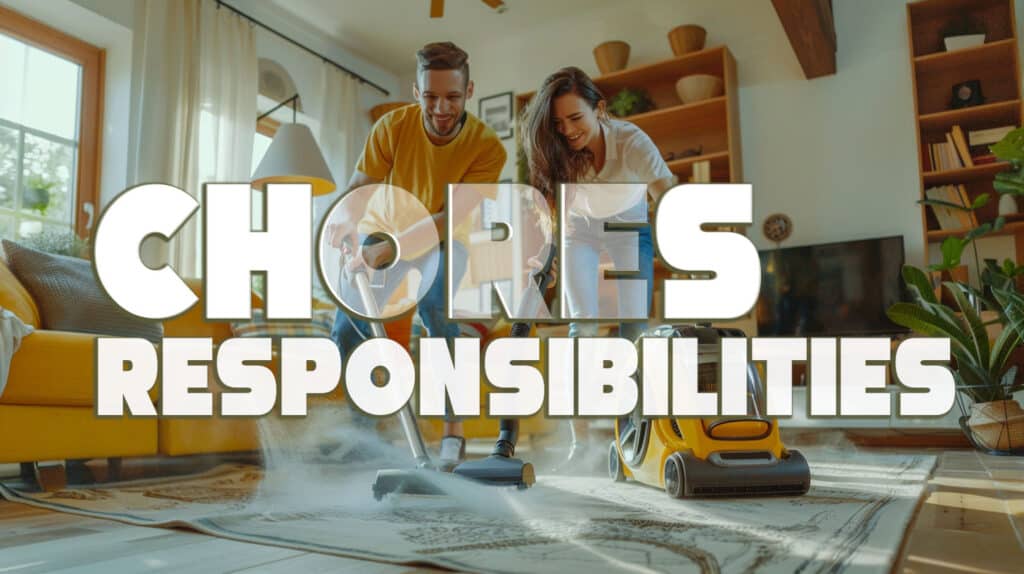
Are you looking to instill essential life skills in your children? Teaching responsibility is crucial for their personal development and success.
Understanding the difference between chores and responsibilities helps kids build self-esteem and confidence while preparing them for adulthood.
In this article, we explore the importance of responsibility for kids, the benefits of giving them age-appropriate tasks, and 5 effective strategies for parents to teach this valuable skill.
You’ll learn how having a sense of responsibility not only encourages independence but also promotes reliability and trustworthiness.
After reading this article, you’ll be equipped with practical insights to help your children grow into responsible and confident individuals.
Here are 5 effective ways to teach responsibility to kids:
- Start with Age-Appropriate Tasks: Assign chores that match their abilities to build confidence.
- Create Clear Expectations: Clearly explain what you expect so they understand their responsibilities.
- Model Responsible Behavior: Show responsible actions in your own life for them to observe and emulate.
- Provide Positive Reinforcement: Offer praise or small rewards to encourage continued responsible behavior.
- Allow Natural Consequences and Punishment: Let them experience the outcomes of their actions, teaching the importance of responsibility.
Importance of Responsibility for Kids
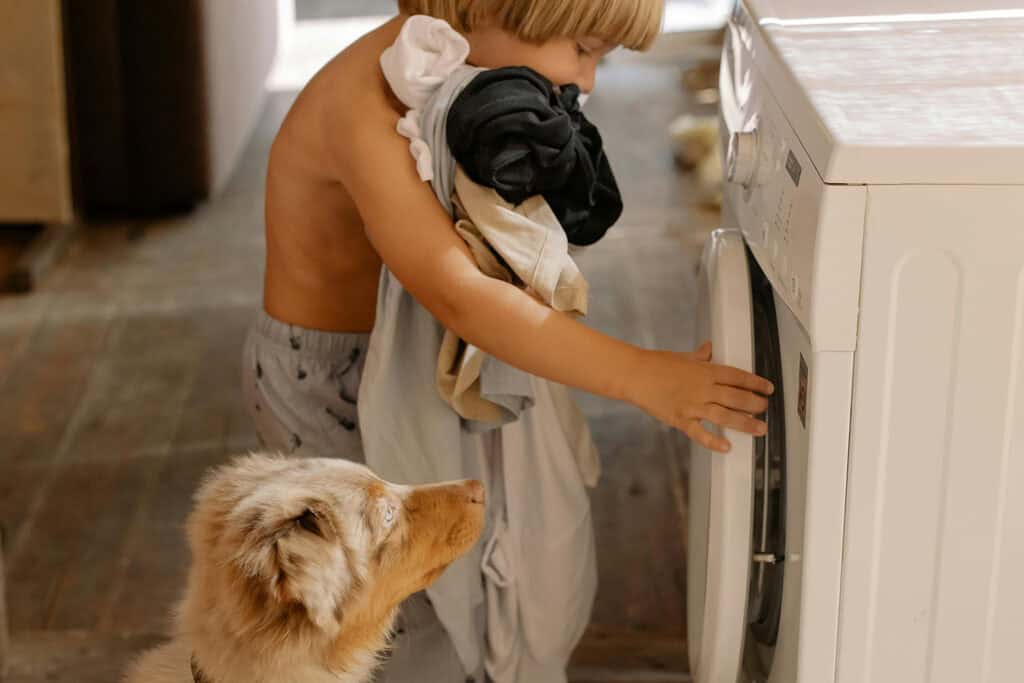
Teaching responsibility to kids is important for their personal growth. It helps them understand the difference between chores vs responsibilities. When kids learn responsibility, they develop self-esteem and confidence.
A responsible child knows that actions have positive or negative consequences. Parents can teach responsibility in a few different ways, such as through daily tasks or a bedtime routine.
By giving kids responsibilities, parents help them build skills that will benefit them in life. Teaching responsibility helps children become more independent and prepares them for adulthood. Developing responsibility also teaches children how to be reliable and trustworthy, which is important for their future.
Here’s a list of 10 benefits of giving responsibility to kids:
- Teaches Accountability: Kids learn to take ownership of their actions and tasks.
- Boosts Problem-Solving Skills: Encourages independent thinking and solutions.
- Develops Time Management: Helps kids prioritize and manage their time effectively.
- Helps Discipline: Teaches self-control and the importance of routines.
- Builds Confidence: Successfully completing tasks boosts self-esteem.
- Encourages Independence: Kids learn to rely on themselves and make decisions.
- Promotes Teamwork: Involvement in group tasks fosters collaboration.
- Instills Resilience: Handling responsibilities teaches kids to cope with challenges.
- Enhances Communication Skills: Discussing responsibilities improves verbal and interpersonal skills.
- Prepares for Adulthood: Equips kids with essential life skills for the future.
See also Stay at Home Mom Responsibilities: 8 Duties and Essential Tips
Ways to Teach Responsibility to Kids
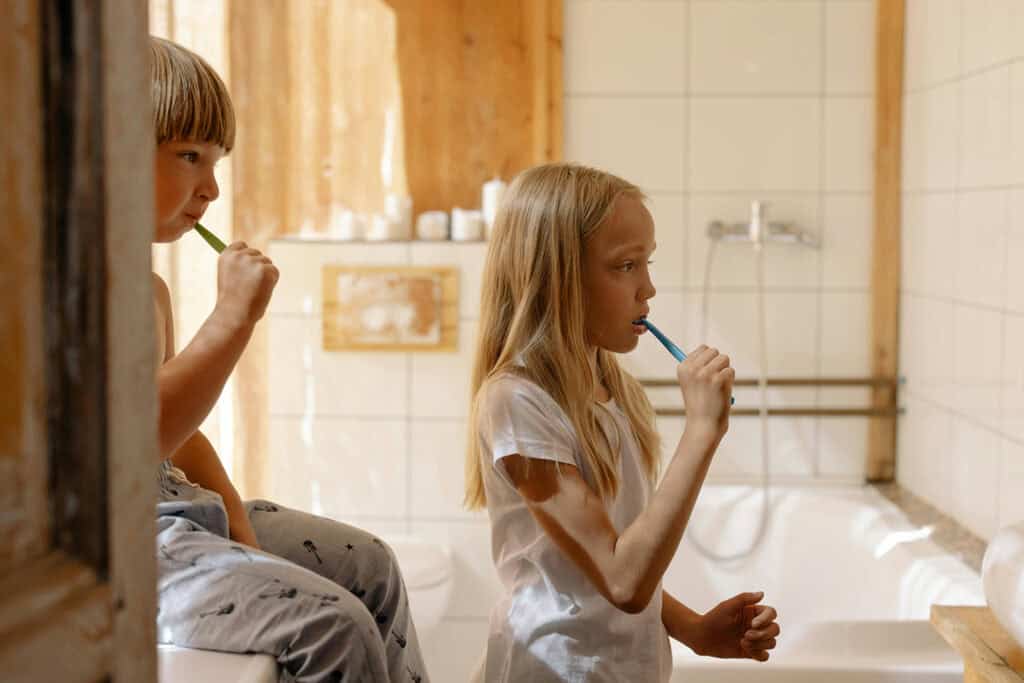
Teaching responsibility to kids starts at home. Parents can assign simple chores for teenagers and younger children. Start with age-appropriate tasks.
Praise responsible behaviors to reinforce them. Encourage kids to complete their chores without reminders. Discuss the importance of taking responsibility for actions. Set a good example by being responsible for yourself. This builds trust and independence in children.
1. Start with Age-Appropriate Tasks
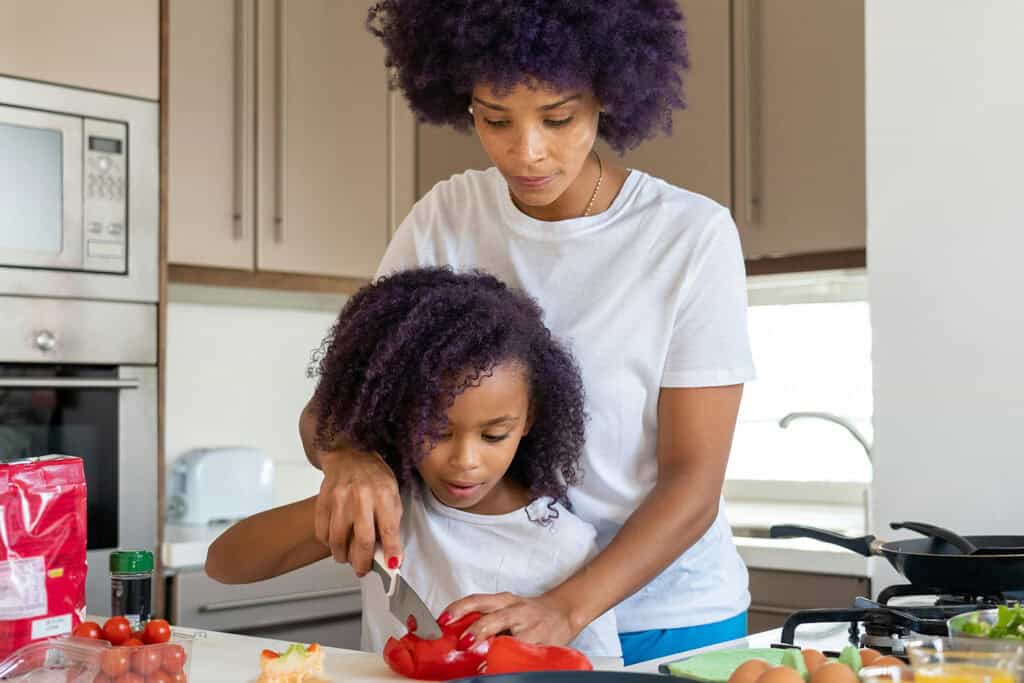
Kids as young as toddlers can begin learning responsibility by participating in simple, everyday tasks. As they grow older, these tasks can evolve to include more complex responsibilities. For example:
- Toddlers: Putting toys away, helping with feeding pets, or placing dirty clothes in a hamper.
- Preschoolers: Making their bed, brushing their teeth, setting the table, or helping with cooking.
- Elementary-aged kids: Completing homework independently, packing their own school bag, taking care of personal hygiene, or assisting with household chores.
- Preteens and teenagers: Managing personal finances (like allowance), keeping track of extracurricular activities, or helping younger siblings with homework.
2. Create Clear Expectations
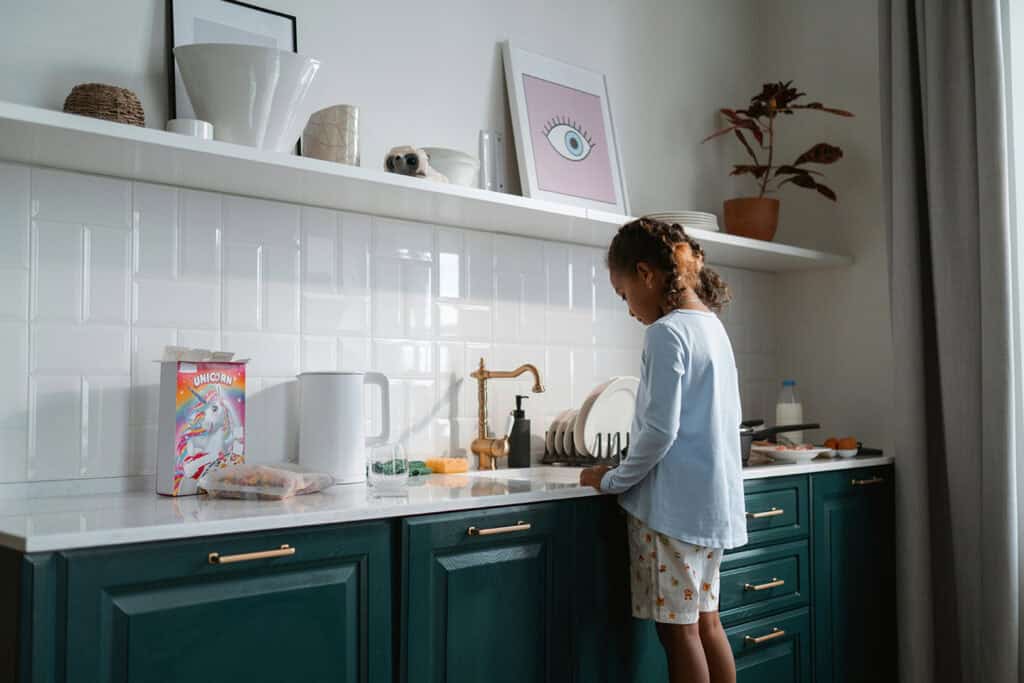
Setting clear expectations is crucial when teaching responsibility. Make sure your child understands what is expected of them for specific tasks.
Be explicit about deadlines, the quality of work expected, and the consequences of not meeting those expectations. Writing down chores or creating a visual chore chart can help reinforce these expectations.
3. Model Responsible Behavior

Children learn by example. As a parent or educator, it’s important to model responsible behavior. Whether it’s keeping your commitments, taking care of personal belongings, or admitting mistakes, kids will notice and mimic your actions.
When they see you taking responsibility, they are more likely to follow suit.
Here’s a list of examples to model responsible behavior for kids:
- Keep Commitments: Always follow through on promises.
- Manage Time: Prioritize tasks and meet deadlines.
- Practice Financial Responsibility: Budget and save money wisely.
- Respect Rules: Follow family guidelines consistently.
- Apologize for Mistakes: Admit when you’re wrong.
- Maintain Cleanliness: Keep your space organized.
- Help Others: Volunteer or assist neighbors.
- Be Honest: Always tell the truth.
- Care for Belongings: Maintain personal and shared items.
- Discuss Decisions: Talk about choices and their consequences.
4. Provide Positive Reinforcement
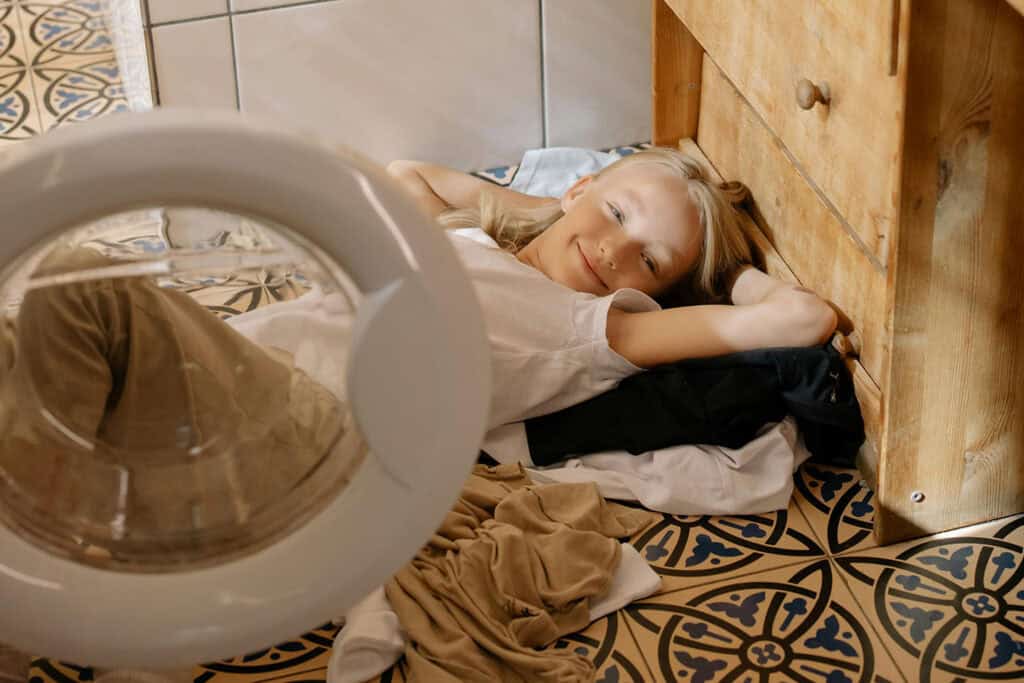
Encourage kids to take on responsibility by providing positive reinforcement. Praise their efforts when they complete tasks, even if they don’t do it perfectly.
This helps build their confidence and motivates them to continue taking responsibility. Simple rewards, like extra screen time or a special treat, can also reinforce responsible behavior.
Here’s a list of simple rewards parents can give kids for being responsible:
- Verbal Praise: Acknowledge their efforts with positive words.
- Stickers or Stars: Use a sticker chart to mark achievements.
- Extra Playtime: Allow additional time for play or favorite activities.
- Small Treats: Offer a favorite snack or dessert as a reward.
- Choice of Activity: Let them choose a family game or movie night.
- Quality Time: Spend one-on-one time doing something they enjoy.
- Special Privileges: Grant them extra screen time or later bedtime.
- Personalized Notes: Write a note expressing pride in their responsibility.
- Tokens for Rewards: Use a token system for redeeming fun activities.
- Involvement in Decision-Making: Include them in family decisions or plans.
5. Allow Natural Consequences and Punishments

One of the most effective ways to teach responsibility is to let kids experience the natural consequences of their actions. If they forget their homework or neglect to care for their belongings, don’t rush to solve the problem for them.
Allowing children to face the consequences helps them understand the importance of following through on responsibilities.
Natural consequences help kids learn from their actions, while punishments provide structure and consequences for inappropriate behavior. Balancing both approaches can be effective in teaching responsibility.
Punishments:
- Time-Out: A brief period away from activities to reflect on behavior.
- Loss of Screen Time: Reducing time spent on devices for misbehavior.
- Written Apology: Requiring a child to write an apology for their actions.
- Grounding: Limiting outings or activities for a set period.
- Behavior Contracts: Creating a written agreement outlining expected behaviors and consequences.
Natural Consequences:
- Lost Privileges: If a child neglects their homework, they may miss out on screen time.
- Increased Chores: Failing to keep a room clean may lead to extra chores.
- Consequences of Actions: Not wearing a jacket on a cold day results in feeling cold.
- Delayed Rewards: Not finishing tasks may lead to postponed fun activities.
- Social Consequences: Not following rules can lead to losing friends during playtime.
Fun Activities to Teach Responsibility to Kids

Fun activities can teach responsibility to kids. Start with a Life Responsibilities List. This helps them understand tasks they can do. Create a Family Weekend Schedule. Let kids help plan fun activities. They can choose chores, too.
Gardening teaches care for living things. Cooking a meal builds planning skills. Set up a weekly cleaning day for teamwork. Use a reward system to encourage completion. These activities make learning fun and help kids become more responsible.
Here’s a list of fun activities to teach responsibility to kids:
- Create a Weekly Planner: Help kids track their tasks and activities.
- Start a Family Book Club: Encourage reading and discussion skills.
- Set Up a Recycling Project: Teach teamwork and environmental care.
- Organize a Family Game Tournament: Kids learn planning and organization.
- Create a Family Budget: Involve kids in managing small expenses.
- Volunteer Together: Teach the importance of helping others.
- Plan a Family Meal: Kids choose a recipe and assist in cooking.
- Start a Gardening Project: Kids care for plants, learning nurturing skills.
- Host a Clean-Up Day: Instill community responsibility.
- Create a Homework Station: Help kids organize their study space.
Age-Appropriate Responsibilities for Children
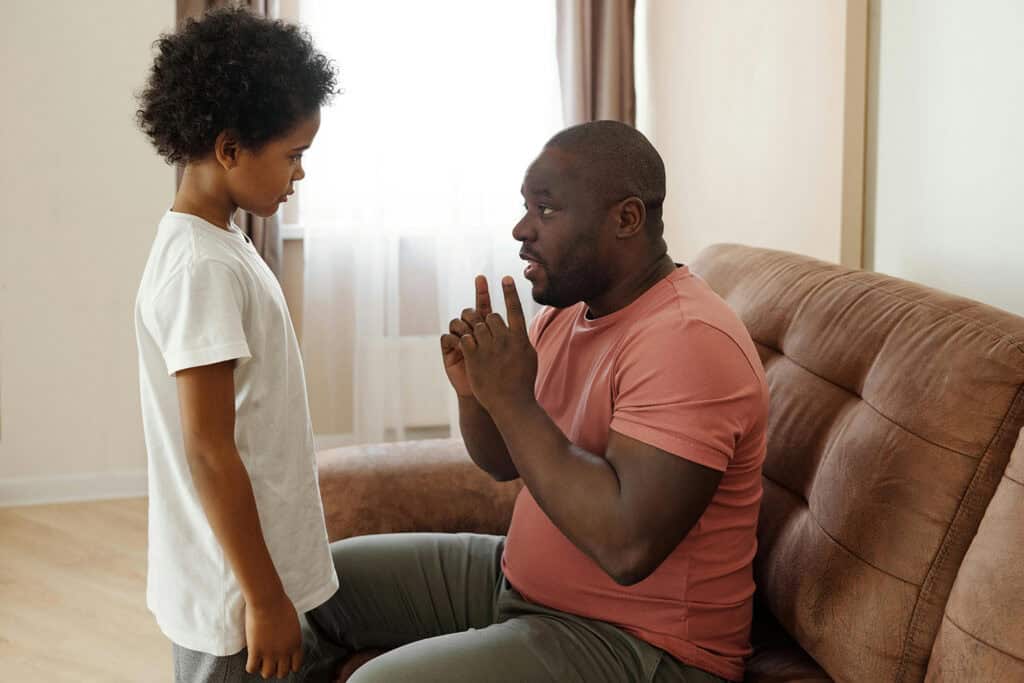
Ages 2-3:
- Tasks: Putting books back on the shelf, wiping up spills, handing items to parents.
- Skills: Fine motor skills, following instructions, basic organization.
Ages 4-5:
- Tasks: Sorting clean socks, brushing teeth, helping with grocery bag unloading.
- Skills: Sorting and matching, hygiene habits, teamwork.
Ages 6-7:
- Tasks: Packing school bags, organizing toys, helping to set out clothes for the next day.
- Skills: Time management, responsibility, and decision-making.
Ages 8-9:
- Tasks: Sweeping floors, organizing bookshelves, folding towels.
- Skills: Attention to detail, problem-solving, following routines.
Ages 10-11:
- Tasks: Cleaning bathroom sinks, helping wash the car, preparing snacks for siblings.
- Skills: Independence, cleanliness, multi-tasking.
Ages 12-13:
- Tasks: Doing laundry independently, mowing the lawn, walking pets.
- Skills: Responsibility, self-reliance, physical coordination.
Ages 14+:
- Tasks: Running errands, managing their own calendar, cooking full meals for the family.
- Skills: Organization, time management, planning, and executing tasks.
See also Top 10 Responsibilities of a Father: Core Duties for a Dad
Responsibility for Kids: A Recap
Teaching responsibility to kids is vital for their growth. Parents can start by creating a Weekly Chores List with age-appropriate chores for 9-12-year-olds. This list can include simple meals, pet care, and keeping their rooms tidy.
By assigning these tasks, parents teach kids essential skills and responsible behavior. It’s important to discuss the negative consequences of not completing chores, such as missing out on soccer practice or free resources.
Parents can also send weekly emails to remind kids of their responsibilities. In middle school, kids learn from teachers about being responsible. This character trait helps them succeed in life. By involving kids in everyday tasks, parents prepare them for the future while making learning fun and engaging!

